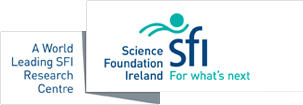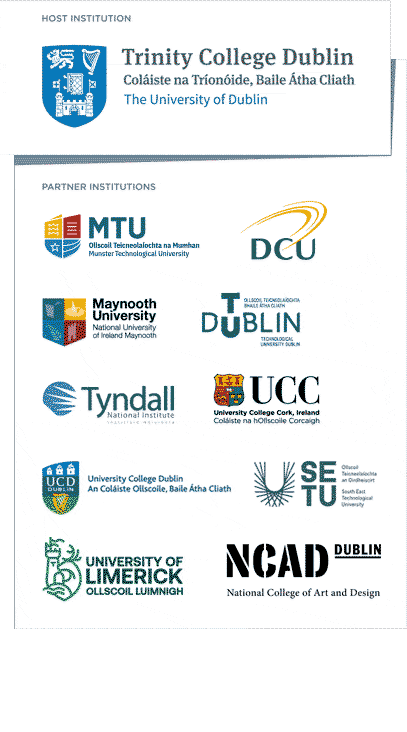RF Circuit and System Innovations for a New Generation of Wireless Terminals
A lecture at Tyndall National Institute by IEEE SSCS Distinguished Lecturer Prof. Peter R. Kinget (Columbia University)
Wednesday, 29 March 2017, 10.30am – 12.00pm
B.0.17 Room 2, Tyndall National Institute, Cork
Admission is free but space is limited.
For externals to Tyndall/UCC, if you plan to attend, please e-mail catherine.walsh@mcci.ie in advance with the subject “KINGET”.
For directions, see: https://www.tyndall.ie/content/how-reach-tyndall
Co-sponsored by IEEE Solid-State Circuits Society (United Kingdom and Ireland Chapter), Tyndall National Institute, MCCI, and CONNECT.
Wireless communication has become an essential part of every sector of the global economy. Both existing systems like cellular, WiFi and GPS and new emerging systems like video over wireless, the Internet of Things and machine-to-machine communications are projected to increase the mobile wireless data traffic by orders of magnitude in the coming decades. The radio spectrum is a finite resource and wireless communication growth is resulting in a growing spectrum deficit. Cognitive radio is a proposed paradigm shift to opportunistically use the available spectrum for improved spectral usage efficiency. Several key circuit innovations are required to make the realization of this vision possible. Future “smart” terminals will need power efficient spectrum scanning capabilities to quickly assess the spectrum usage. They further need to receive at multiple frequencies using a variety of standards. This leads to very stringent receiver linearity and blocking requirements given the absence of high quality front-end tunable filters. Designing for worst-case RF scenarios further leads to excessive power consumption in the terminals, and dynamically adapting the RF performance in the field to the RF spectrum conditions is emerging as a required receiver feature.
Prof. Kinget will first discuss a family of field-programmable receiver front ends demonstrating two linearity enhancement techniques. With interferer-reflecting loops the blocker voltage swing at the input of the low noise amplifier can be suppressed and using hybrid Class-AB-C low-noise transconductors close-to rail-to-rail blocker signals can be handled. Next, he will describe the design of receiver RF front ends using only switches and capacitors. Input impedance matching, N-path filtering, down-conversion and high-order IIR filtering are implemented using only switches and capacitors, resulting in more than rail-to-rail tolerance to close-by blockers. Then, he will show how compressed sampling can be exploited to design a rapid interferer detector with a 1GHz instantaneous bandwidth using a quadrature analog-toinformation converter (QAIC). This architecture is faster and more energy efficient compared to traditional spectrum scanning solutions by one to two orders of magnitude. Experimental results for IC prototypes demonstrating all the design techniques will be presented.
Peter R. Kinget received the engineering and Ph.D. degrees in electrical engineering from the Katholieke Universiteit Leuven, Belgium, in 1990 and 1996, respectively. From 1996 to 1999 he was a Member of Technical Staff at Bell Laboratories, Murray Hill, NJ. From 1999 to 2002 he held various technical and management positions in IC design and development at Broadcom, CeLight and MultiLink. He joined the faculty of the Department of Electrical Engineering, Columbia University, NY in 2002 where he currently serves as a Professor. He is also a consulting expert on patent litigation and a technical consultant to industry.
His research interests are in analog, RF and power integrated circuits and the applications they enable in communications, sensing, and power management. He is widely published in journals and conferences, has co-authored 3 books and holds 13 US patents. Dr. Kinget is a Fellow of the IEEE. He has been an Associate Editor of the IEEE Journal of Solid State Circuits and the IEEE Transactions on Circuits and Systems II. He has served on the Technical Program Committees of the IEEE Custom Integrated Circuits Conference, the Symposium on VLSI Circuits, the European Solid-State Circuits Conference, and the International Solid-State Circuits Conference. He currently is a “Distinguished Lecturer” for the IEEE Solid-State Circuits Society, a member of the Board of the Armstrong Memorial Research Foundation and an elected member of the IEEE Solid-State Circuits Society Adcom.
He is a co-recipient of the “Best Student Paper Award – 1st Place” at the 2008 IEEE Radio Frequency Integrated Circuits (RFIC) Symposium; of the “First Prize” in the 2009 Vodafone Americas Foundation Wireless Innovation Challenge; of the “Best Student Demo Award” at the 2011 ACM Conference on Embedded Networked Sensor Systems (ACM SenSys); of the “2011 IEEE Communications Society Award for Advances in Communication” for an outstanding paper in any IEEE Communications Society publication in the past 15 years; and of the “First Prize ($100K)” in the 2012 Interdigital Innovation Challenge (I2C).
CONNECT is the world leading Science Foundation Ireland Research Centre for Future Networks and Communications. CONNECT is funded under the Science Foundation Ireland Research Centres Programme and is co-funded under the European Regional Development Fund. We engage with over 35 companies including large multinationals, SMEs and start-ups. CONNECT brings together world-class expertise from ten Irish academic institutes to create a one-stop-shop for telecommunications research, development and innovation.
Articles


